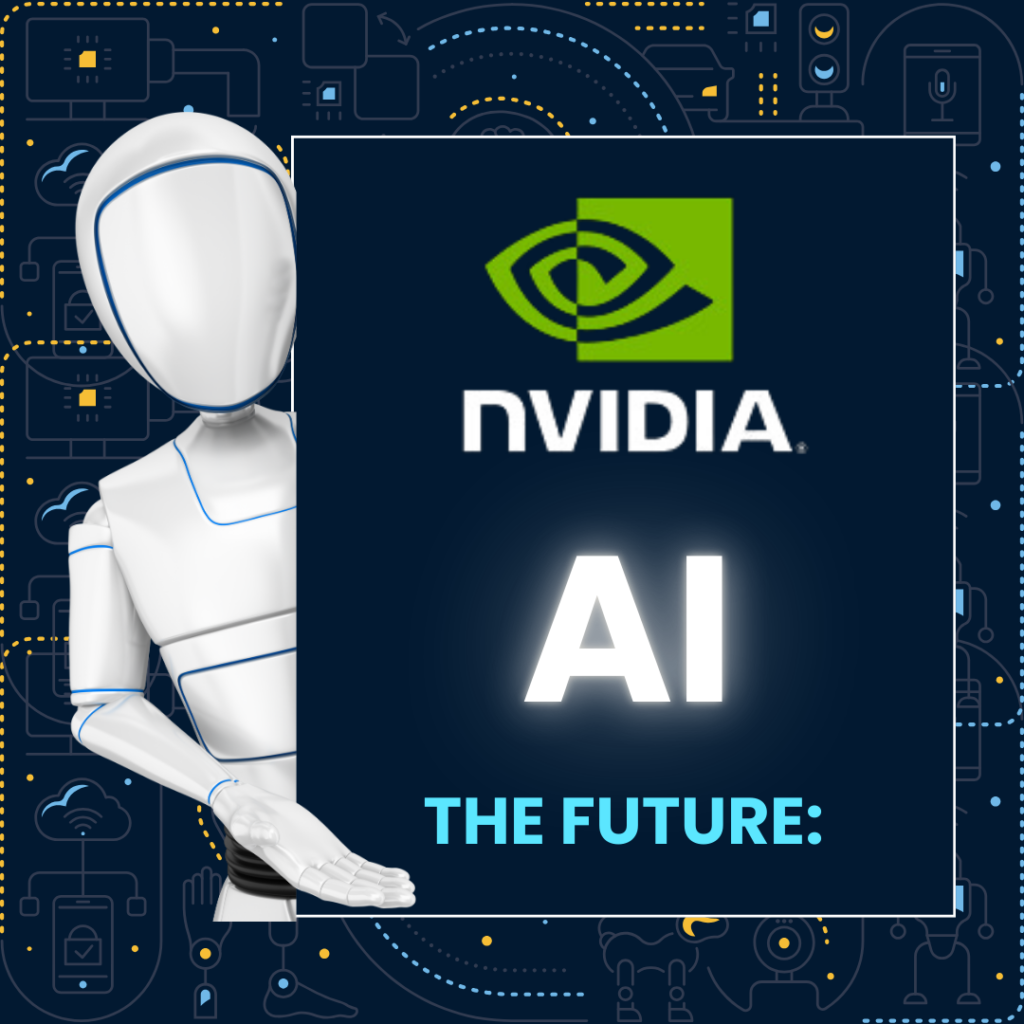NVIDIA CEO Jensen Huang’s AI Workforce Prediction
NVIDIA Corp. CEO Jensen Huang foresees a transformation in where AI workers will handle roles in marketing, chip design, & S C management. With advancements in the technology, he predicts that these roles, traditionally human-dominated, will see substantial productivity gains when complemented by it. By enabling rapid data analysis, strategic decision-making, and streamlined processes, AI is set to redefine efficiencies across various industries. In marketing, AI-driven tools can offer personalized customer experiences and real-time data insights, while in chip design, it can optimize complex configurations faster than ever.
The supply chain sector, too, stands to benefit from It’s predictive and logistical capabilities, which can mitigate delays and improve inventory management. Huang’s vision of it as a workforce partner rather than a replacement emphasizes that while it will take on critical tasks, humans will still play a central role in guiding, managing, and integrating these systems effectively.
As AI reshapes roles in marketing, chip design, and supply chain management, securing your job amidst these changes requires proactive strategies. Here are key ways to remain indispensable:
Adapt to AI-Enhanced Roles
- Understand AI’s Impact: Study how AI affects your area. In marketing, for instance, it can personalize campaigns, analyze customer behavior, and automate scheduling. In chip design, IT enhances testing, configuration, and prototype modeling. Supply chain roles benefit from it’s predictive analytics and inventory management. Recognizing it’s advantages allows you to leverage it as a complementary tool, rather than viewing it as a competitor.
- Foster AI Collaboration Skills: Embrace tools and software that apply IT in your field. Marketing professionals can upskill in AI-driven CRM tools, chip designers can learn AI-augmented design software, and supply chain managers can master it forecasting tools. This competency ensures you remain relevant and tech-savvy in your role.
Embrace Lifelong Learning
- Stay Updated on AI Trends: Regularly follow industry trends, particularly around it advancements in your field, through reputable sources like Money Tech News and other tech publications.
- Acquire Relevant Skills: Enroll in courses that focus on AI, machine learning, and data analysis. Familiarity with these technologies will position you as an asset who can work collaboratively with latest tools.
Learn @AI From Rohit Mote Here
Enhance Communication and Collaboration:
- Invest in Communication and Critical Thinking: While AI handles data-heavy tasks, skills like empathy, problem-solving, and creativity remain irreplaceable. Soft skills such as communication, creativity, critical thinking, and emotional intelligence are difficult to automate. Focusing on these will make you irreplaceable, as they’re essential for teamwork, innovation, and leadership.
- Creative problem-solving, for example, enables you to think beyond algorithms in campaign ideation, design innovation, or supply chain crisis management.
- Focus on Strategy and Innovation: Roles with strategic oversight will be challenging for IT to replace. Position yourself in tasks that require big-picture thinking, innovative approaches, and cross-functional teamwork.
- Adaptability: Demonstrate a willingness to adapt to new technologies and workflows. Flexibility is crucial as companies continuously evolve with technological advancements.
Commit to Lifelong Learning and Specialization
- Stay Current with Industry Trends: AI is constantly evolving, so keep learning about new advancements. Explore courses data analytics to understand the tech better. Staying informed will keep you competitive and adaptable.
- Seek High-Value Niche Areas: Specializing in complex, human-centered areas of your field adds security. For example, marketing that requires creative direction, chip design focusing on user experience, or supply chain roles that involve complex negotiations are less likely to be fully automated.
Specialize in High-Value, Human-Centric Roles
- Focus on Creative and Strategic Roles: While AI can handle repetitive tasks, creative and strategic thinking is harder to replicate. Specialize in areas that require innovation, such as crafting marketing strategies or designing unique customer experiences.
- Engage in Complex Problem Solving: Develop expertise in solving intricate issues it might struggle with. For instance, roles that involve navigating intricate human relationships or complex supply chain logistics are harder to fully automate.
Also Read : Aria by Rhymes AI: An Open-Source Multimodal Revolution
Upskill in Data Literacy
- Become Comfortable with Data: AI relies on data, so a fundamental understanding of data analysis, interpretation, and management will give you an edge in nearly any field.
- Leverage Data for Decision-Making: Learn to make data-informed decisions. In many cases, being able to analyze data will allow you to make recommendations that IT might miss due to nuanced human insights.
Consider AI-Resistant Fields
- Explore Roles Less Likely to be Automated: Fields that involve a high degree of human empathy, social interaction, or ethical considerations—like healthcare, education, or roles requiring human touch—are less susceptible to disruption.
By viewing it as a collaborative tool and focusing on uniquely human skills, you can secure your role in an AI-driven workplace. Embracing continuous learning, creativity, and adaptability ensures you remain a valuable team member as IT continues to transform these industries.

